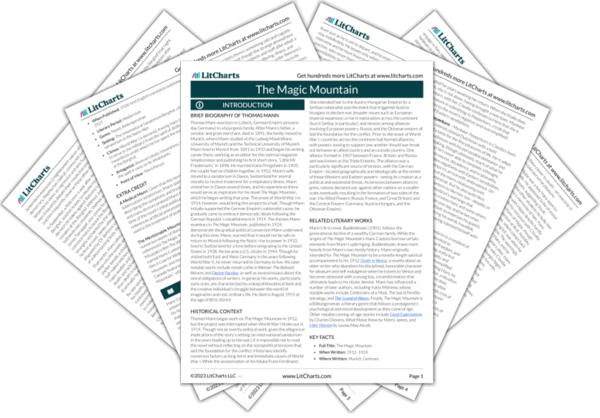As usual, Hans remains ambivalent, torn between two opposing sides. On the one hand, Krokowski’s invitation to release repressed passions appeals to him. On the other, he clings to his rational, bourgeois sensibilities. This is why he compares Krokowski to the Pied Piper, a folkloric villain who leads a village’s children off a cliff to their deaths: he feels that acting on irrational passions will only lead to self-destruction, and he’s not convinced this is the path he wants to go down.
